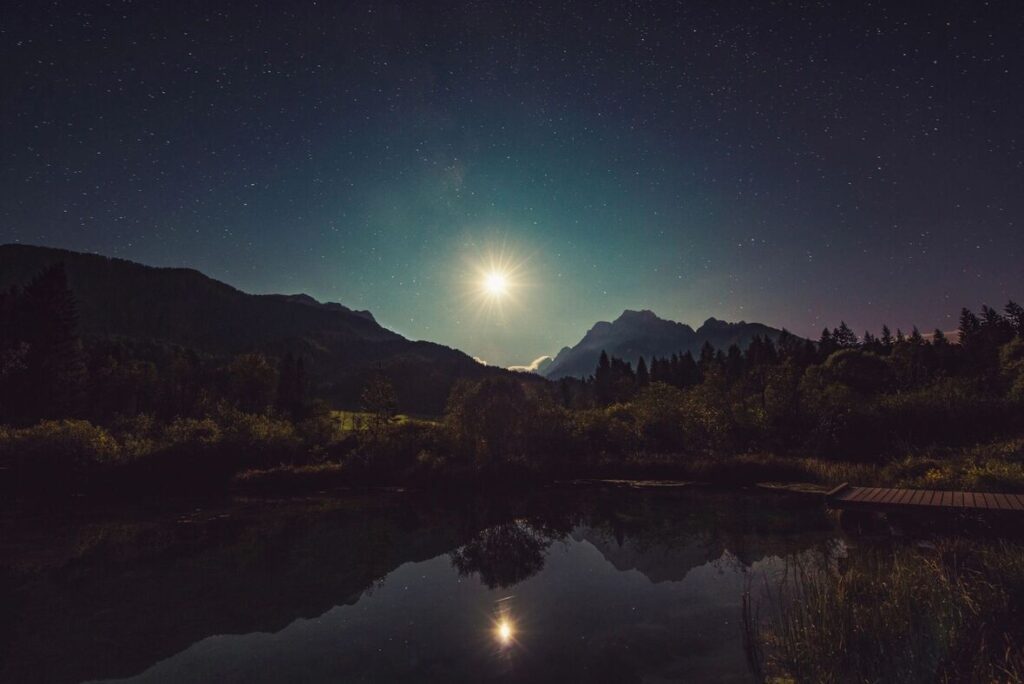Today’s Word from Trinity Keyboardist Sheila Weidendorf…
Through the night of dark and sorrow
onward goes the pilgrim band,
singing songs of expectation,
marching to the promised land.
Clear before us through the darkness
gleams and burns the guiding light:
pilgrim clasps the hand of pilgrim
stepping fearless through the night.
One the light of God’s own presence,
o’er his ransomed people shed,
chasing far the gloom and terror,
brightening all the path we tread:
one the object of our journey,
one the faith which never tires,
one the earnest looking forward,
one the hope our God inspires.
One the strain the lips of thousands
lift as from the heart of one;
one the conflict, one the peril,
one the march in God begun:
one the gladness of rejoicing
on the far eternal shore,
where the one almighty Father
reigns in love for evermore.
Onward, therefore, sisters, brothers,
onward with the cross our aid;
bear its shame, and fight its battle,
till we rest beneath its shade.
Soon shall come the great awaking,
soon the rending of the tomb;
then the scattering of all shadows,
and the end of toil and gloom.
The text of today’s hymn was composed by the Danish writer, Bernhardt Ingemann, who not only composed many hymns but was a notable poet in his day. Though he wrote many hymns, this in the only one that is commonly found in English-language hymnals. It was translated from its original Danish by the Rev. Sabine Baring-Gould, an Anglican priest, scholar, novelist and more. He was a hymnodist himself and is known perhaps best for his hymn, “Onward Christian Soldiers.”
The hymn tune was composed by Welshman Thomas J. Williams – whose primary vocation was NOT composer or initially musician, but, in fact – insurance salesman! He did, however, take up musical studies and did become an organist and choirmaster and composed a few hymns.
This hymn is included in the ELW hymnal as a Lenten hymn and draws from a plethora of scriptural references. Of course, this period of Lent is associated with Jesus’ solitude in the wilderness, facing temptation and testing his own faith in his God and in the “Choiceless Choice” of his life’s purpose. We often think of Lent – in our modern church and lives – as a time of deprivation. But this hymn does not offer up self-denial, but instead, a message of hope, and of action, and of unity.
In most of our lives there have been – or will be – “wilderness” times; times when we do not know who or what we are, when we struggle with our own sense of purpose and passion, or when we are lost in the desert of our own suffering. It is all too easy to fall into the well of our own stories, of our despair, when the pathway forward is not clear, has not yet revealed itself. In such times it is perhaps normal, understandable, to seek out or cling to structures of seeming security, whatever that may be in the particulars of our varying lives.
There is something to be said, however, to letting go of all expectations of outcome, to moving outside of our comfort zone and fully experiencing the wilderness to find out what it really is we fear, or avoid, or deny, within ourselves. Call it meditation, or prayer, or finding that still voice within…. There’s no way “to” but “through.” And facing ourselves is not always easy – or pleasant! – but what have we to lose? Only the inner hindrances to our full expression as children of God!
Now – back to the hymn (though we have not really left it….): Something that really strikes me in this text is the use of the inclusive “One.” The hymn is one of action, of moving always toward the Light, regardless of what perils there may be (in the world or within ourselves!). And more, there is unity in our common seeking, searching, praying, healing, suffering, reaching, singing. For we are ALL (sisters and brothers!) made in the image of God, after all. And what causes you to suffer, causes me to suffer (if I am paying attention!). What brings joy in the midst of us enlivens us all.
It is seemingly paradoxical – on one hand, all I can ever master is myself. Only I can walk my own pathway, face my own inner wilderness. At the same time, I/we are never alone. We are created in a unified field of expressions of God – each of us part and parcel of God, ever connected and never truly apart from each other or from the love of God.
Thus, this Lenten hymn brings its acknowledgment that yes, there IS struggle, peril, darkness, loneliness, suffering but also – and always! – there is hope, light at the end of the tunnel and, in fact, light everywhere and within. Our common hope, our common purpose, our common humanity binds us together in the journey toward personal and collective wholeness, forgiveness, and the revelation of the divine within our very humanity. Like Jesus, we can take up the choiceless choice of walking the path as it finds us, beginning each day right wherever we are, remaining hopeful and grateful for the journey, together.
Click HERE to hear this tune performed by Tekla Cunningham, violin and Sheila Weidendorf, piano.
Sheila Weidendorf
Tune: “Ebenezer,” composed by Thomas J. Williams (1869-1944)
(here arranged by Ricahrd W. Hillert)
Text: Bernhardt S. Ingemann (1789-1862)
Transl. Sabine Baring-Gould (1834-1924)



